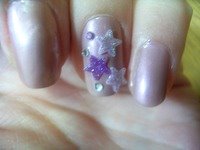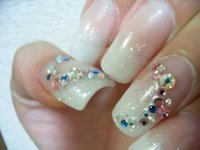
You’re right to avoid ginkgo biloba, because it cannot be taken with heart medication (it is always advisable to check with your doctor before taking any remedies and to make sure that any unusual symptoms are not related to your medication).
I just wonder if your circulation problems are linked to your arteries being a little clogged up with fat? If so, there are foods that may help to reduce this damage and, indeed, to protect the other blood vessels from hardening. Red wine is a good start, even if you are allowed only one glass a day, as it is rich in antioxidants such as flavonols and athocyanins, which help to reduce the likelihood of fat depositing in your blood vessels; you are better off being a drinker of one glass a day than of none at all.

Fresh garlic, which is in the shops and markets now, is rich in allicin, an antioxidant that can prevent fat from being deposited in the blood vessels. I’d include as much fresh garlic (it’s even better for you raw) in your diet as possible — the alternative, if your partner demands one, is to take a garlic supplement. The only really effective garlic supplements on the market are those known as real allicin products; look for brands such as Alliforce and Allimax (recommended dose about 180mg of allicin powder, usually one capsule per day). I think that garlic oil, aged garlic extract and garlic powders are inferior products with few healing properties.

All fresh fruits and vegetables are rich in antioxidants (including vitamin C, beta-carotene and selenium), which keep the arteries healthy, so make sure that you have your five portions a day. Your diet should be high in wholegrains (so plenty of muesli, porridge and wholegrain bread), as these are good for your heart. But you don’t need highly processed cereals; I’d choose a plainer, less salty and sugary option such as Weetabix, Shredded Wheat, porridge or a simple no-added-sugar muesli.
Include up to four portions of oily fish a week (a portion is 140g of the fish). Oily fish contain omega oils, which are great for helping to keep our blood fat levels in check (they increase the production of good high-density lipoprotein — HDL — which in turn keeps the bad low-density lipoprotein down, the end result being that our hearts and blood vessels are happy). Choose from herring, mackerel, sardines, salmon and fresh tuna.
You should really avoid fatty meats such as sausages and bacon, unless these are exceptionally lean and you grill them. Cheese, butter and creams, along with pastries and baked foods containing butter and other saturated fats, aren’t great for the arteries, but a little treat now and then is fine, I’m sure.
Vitamin E may help to maintain a healthy circulation but there is no need to take supplements — studies show that vitamin E in the diet is more effective. So take olive, safflower, corn and wheatgerm oil (watch the quantities if your weight is high, as these are also high in calories). Sun-dried tomatoes, almonds, hazelnuts and avocados are other good sources of Vitamin E.
1 comment:
That's interesting...
Post a Comment